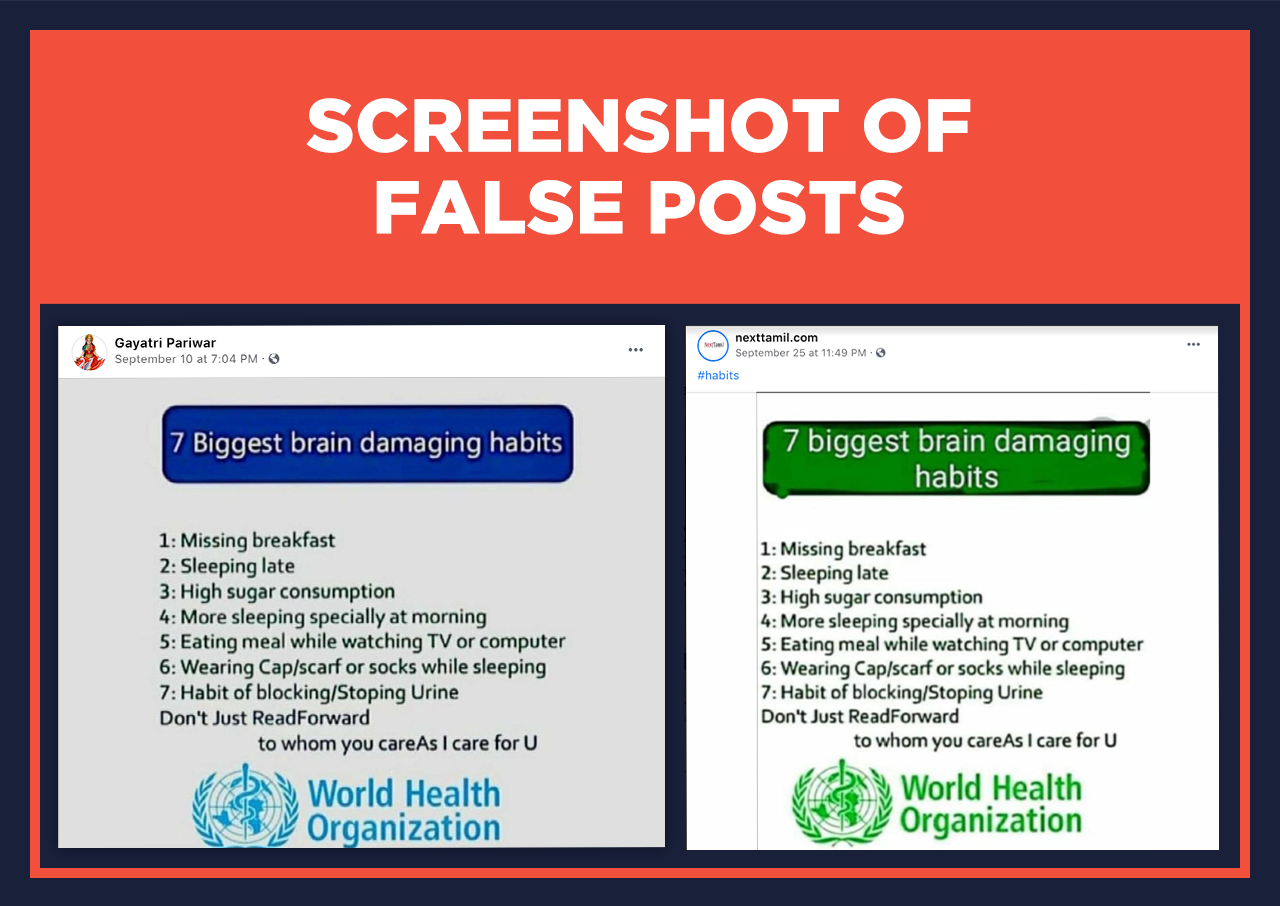While fact checks usually cover topics that are common fare for adults – such as current events or government policies – false claims can sometimes creep into subject matters easily accessible to children who are often left unequipped to detect them.
If even higher education students up to the doctoral level are found wanting when it comes to assessing information quality online, what chances do unprepared children have?
Parents, teachers, and guardians are in the best position to impart fact-checking knowledge and the skills to younger media consumers.
Children can start developing the habit of fact-checking with proper guidance and immersion suitable for their ages.
Here are 4 basic fact-checking tips derived from Rappler fact checks that can be used in teaching the skill to children:
TIP #1: Verify details with official sources.
Not everything that can be found online ought to be believed. It’s important for children to know which are the reliable sources of information, and to verify claims against what details these official sources provide.
In the claim that Kabataan Partylist received about 160,000 votes in the 2019 election, the total number of votes can immediately be checked against the data uploaded by the Commission on Elections. The Comelec’s 2019 Party List Canvass Report shows that Kabataan Partylist received 195,837 votes, which is higher than what the false claim indicated.
When a suspicious claim says that it has obtained its information from an official source, it wouldn’t take much time to go straight to the official source to confirm if the information is really there.
The claim that Guinness World Records named Marcos the best president of all time can immediately be checked by going to the official Guinness World Records website. The use of their regular search feature or their record application search feature (which contains all records but requires an account on the website) will show you that there are no official records to support the claim.
It is also important to make sure that the information obtained is updated as of a desired time period.
TIP # 2: Look for more than one source.
There is a need to consult more than one source when looking for or verifying a piece of information, while making sure that all sources are reliable.
Multiple sources serve the children well because sometimes even those considered official or reliable can commit mistakes. For instance, textbooks can contain errors or information that conflict with other sources.
The ubiquitous Wikipedia is not a reliable source either – even Wikipedia itself says so – mainly because anyone can edit it, though it can contain links to other useful websites.
The website of the National Economic Development Authority (NEDA) Region XI once stated that Davao City was “reputedly the largest city in the world.” This claim conflicted with many other official data sources, such as the Philippine Statistics Authority, statista.com, demographia.com, the United Nations (UN), the 2019 Shanghai Statistical Yearbook, and the official Davao City website.
TIP # 3: Examine social media content more closely.
Spelling mistakes, grammar errors, bad formatting, and clearly doubtful information are red flags for the need to investigate a claim further.
In a photo that claimed that The Philippine Star ran a front-page headline that announced Davao City Mayor Sara Duterte’s candidacy for the 2022 national elections, the cover page, which was from the newspaper’s February 24, 2018 issue, was altered to show “SARA IN 2022.”

Looking at the photo closely, the “SARA IN 2022” text seemed too tilted for a headline. The background of the same text can be seen to have a light shade of blue, unlike the rest of the newspaper which is grayish-brown.
These observations can spur the need to check more. A further verification of this claim through a Google reverse image search, in fact, shows that the original photo contains the headline, “Speaker Sara in 2019?” An advanced fact-checking move would be to Google search another readily visible headline from the same page – like “Interpol arrests suspect in brutal slay of OFW” – to know if the article in question indeed came out.
In another claim that said that the World Health Organization released an infographic on the “7 biggest brain damaging habits,” the following should have aroused suspicion about whether WHO indeed released such information: the obvious spelling mistakes (“Stoping”), bad formatting (the “ReadForward” and “to whom you careAsI care for U”), and clearly doubtful information (really, does wearing socks while sleeping cause brain damage?).

The claim was rated false. Here, aside from checking the information with WHO, it also helps to check other trustworthy sources. In this case, Factly and The Quint also fact-checked the claim.
Tip # 4: Know the facts; read a lot.
This is the all-encompassing tip: just know the facts. That way, you can debunk false claims as you see them right away, including claims that do not look suspicious at first glance because they sound plausible.
Those who took their Philippine History seriously can easily debunk the claim that Andres Bonifacio was not a rebel against the government. In fact, the fact check story contained passages taken straight from textbooks to debunk the claim. It is also helpful to check the definition of “rebel” (or “rebellion”), which can be confirmed from an online dictionary like Merriam-Webster; a paper dictionary will also do.
Indeed, checking some claims requires no more than knowledge obtainable in high school.
In this fact-check story debunking that the Philippines is rich in water called deuterium, the relevant chemistry facts accessible at the high school level are: (1) water of any form has chemical formula H2O and heavy water is simply water whose both hydrogen atoms are deuterium (and whose formula is written as D2O for clarification); (2) deuterium is an isotope or one of the forms of hydrogen which is an element, while heavy water is a kind of water which is a compound.
How can children know facts? Children can be inspired to read widely and develop good reading habits, involving proper material, including books. Doing these will enable them to accumulate a stock of knowledge that they can use to go defend themselves against polluted information on social media.
When interested in news, children can be directed to reputable publications that follow strong journalistic standards.
Challenge for everyone
Children could easily fall prey to disinformation. The key to beating that is to develop their media literacy early and give them proper guidance at their level.
Remind the young fact checkers that, if there is something they do not know, if there is a claim they’re not sure about, or if they want to learn more, they should ask for help from someone trustworthy.
Meanwhile, parents, teachers, and guardians can join training sessions and webinars that can help you sharpen your fact-checking skills. If you spot any suspicious claims online, you can send an email to factcheck@rappler.com and join the online community of fact-check volunteers in the Fact-checking in the Philippines Facebook group to get updates about the latest webinars, events, campaigns, and projects related to fact-checking. – Rappler.com
Percival Byron Bueser is a volunteer fact checker for Rappler, a product of our 5-week mentorship program involving exclusive, hands-on training on detecting, investigating, and verifying online misinformation and disinformation.
His professional experiences are in the fields of teaching, public speaking, and insurance. He has also published four children’s books. He was the Board Topnotcher (ranked #1) during the March 2013 Licensure Examination for Teachers – Secondary Level as well as the batch valedictorian and a chancellor’s lister of the graduating batch of the University of the Philippines Open University (UPOU) in 2014.